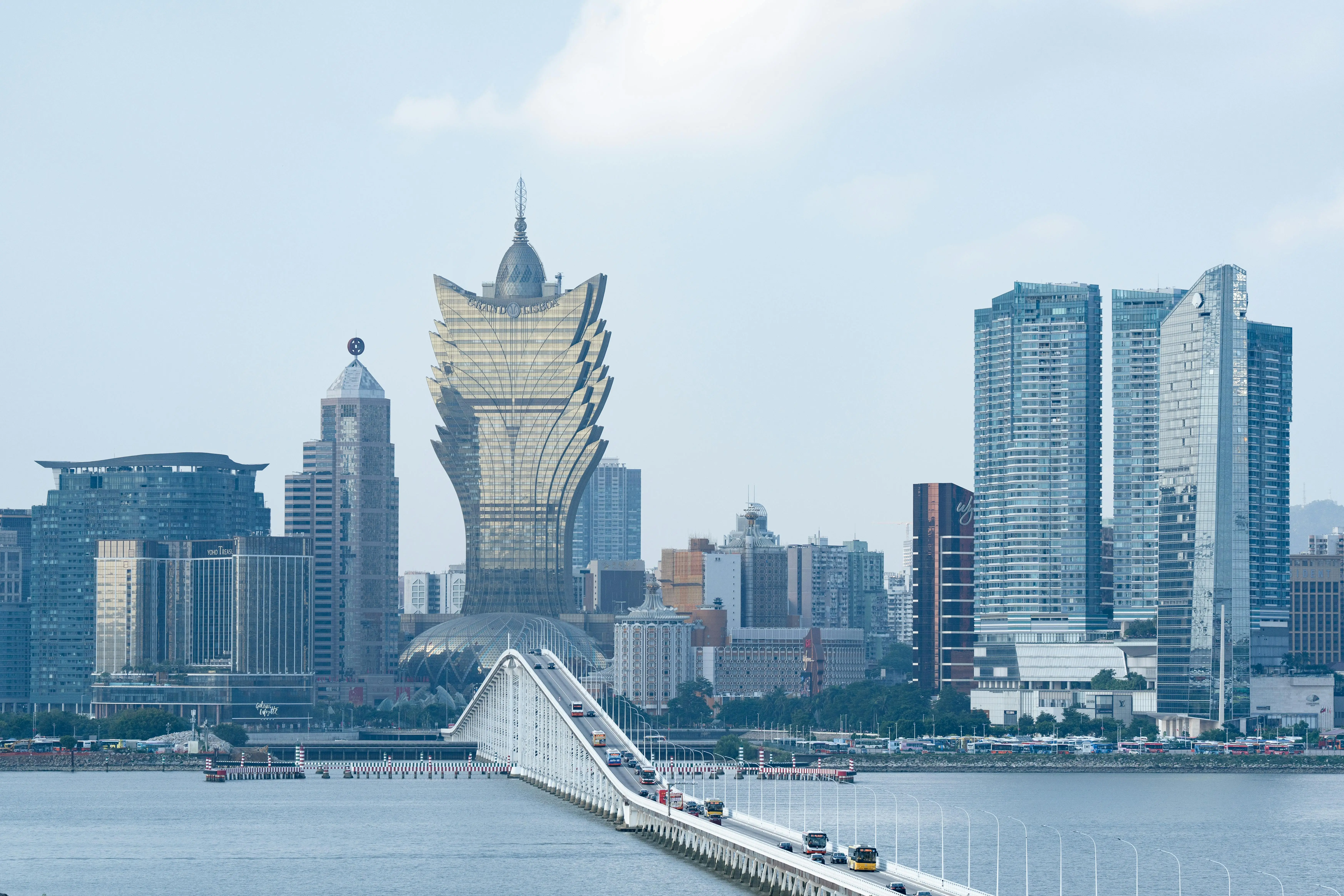Asia
Import to Macau
Macau, a Special Administrative Region (SAR) of the People’s Republic of China, has emerged as a vibrant hub for technology and innovation in recent years. The region’s strategic location, robust infrastructure, and supportive government policies have fostered a dynamic tech ecosystem that has attracted international trade.

Tax
0%
Duties
0%
Lead Times
1-2 weeks
Restricted Items
N/A
Best Carrier Option
Courier or Freight Forwarder
Non-Working Days
Saturday, Sunday, and Public Holidays
Prominent Language
Mandarin and Portuguese
Exporting and Importing to Macau
Macau is a major economic center and one of the wealthiest regions in the world. Its tech landscape is poised for continued growth, driven by supportive government policies and a growing emphasis on innovation. The region’s location and favorable trade environment present promising opportunities for technology and data center businesses.
Tourism, gambling, and finance primarily drive the city’s economy. The country has adopted a unique trade policy framework combining elements of the Chinese mainland and international trade practices. This framework fosters economic growth and development while ensuring compliance with global trade rules.
Macau is a free port with very low trade barriers and no tariffs on most items, further helping facilitate trade within the country. Additionally, the country has signed several trade agreements with other countries and regions, such as the Closer Economic Partnership Arrangement, which provides easier access to mainland China.
Population
0.72M
Biggest Industry by Export
Jewelry
Capital City
N/A
Biggest Industry by Import
Jewelry
Unique Pain Points for Imports to Macau
Licenses and Regulations
Certain goods and technologies require import or export licenses issued by the Macau Trade and Economic Development Bureau (TDEC), which require extensive paperwork. The import and export of dual-use goods are also subject to more specific regulations, including certain permits and licenses.
Macau also imposes limited tariffs and customs duties on imported goods. The applicable tariff rates depend on the item’s Harmonized System (HS) code and Country of Origin. Certain products require certification before they can be imported into Macau.
Complex Export Controls
Macau has a relatively open trade policy. However, there are some exceptions to this rule. While the country does not have any unilateral embargoes in place, it does comply with the export controls of the United Nations Security Council and the Wassenaar Arrangement on Export Controls for Dual-Use items.
These export controls restrict the export of certain goods and technologies to countries under embargo or that threaten international peace and security. Understanding all these rules and expectations is challenging and can be hard to keep up with.
Infrastructure and Market Constraints
Macau’s market size is relatively small, and the port of Macau faces infrastructure constraints that lead to operational delays and logistical challenges. As a result, Macau is dependent on nearby ports, particularly those in Hong Kong, for the import and export of goods.
This access allows businesses to access more global shipping routes, but it also introduces challenges such as increased costs, higher administration, and longer lead times.
Countries Associated with Macau
Asia
Hong Kong
North America
United States of America (USA)
Specialized Solution for Macau
Our team is deeply immersed in the nuances of Macau’s customs compliance landscape. We possess a comprehensive understanding of the regulatory framework to guide you through every step of the import process with precision and clarity.
With TecEx as your trusted Importer of Record (IOR), we empower businesses to effortlessly navigate the intricacies of Macau’s import regulations, ensuring seamless entry into this dynamic market. Our Delivered Duty Paid (DDP) shipping solution navigates the pre-shipping, in-transit, and post-clearance of all imports and exports from Macau.
Specific Compliance Regulations
Import Declaration Form
An Import Declaration Form is needed for all imports into Macau. This form reports the entry of goods into the region and contains critical information, including the country of origin, value of the goods, and transportation method.
Documentations
Standard documents such as an airwaybill, commercial invoice, and data sheet must be gathered for imports into Macau. TecEx is an expert in gathering these documents and will take all the necessary steps to ensure everything is filled out correctly.
The official languages spoken in Macau are Mandarin and Portuguese. As a result, some documents need to be translated into either of these languages. Our team will handle all translations, dealings with customs officials, and ensure full compliance with imports into Macau.
Import Tech into Macau
Let TecEx handle all compliance and regulatory requirements in Macau and Mainland China. Contact one of our trade experts for a quote and start the shipping process.



